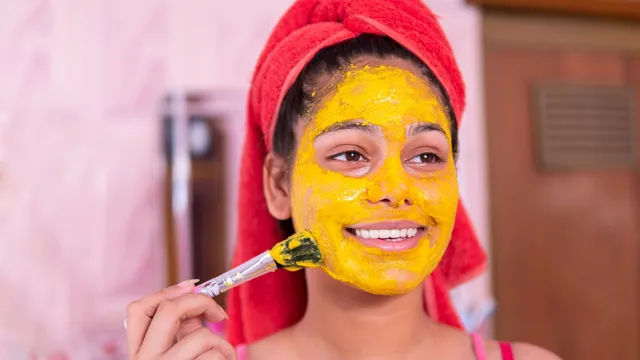- By Iram Hussain
- Sun, 21 Sep 2025 05:25 PM (IST)
- Source:JND
The internet is full of skincare 'hacks' that promise glowing skin overnight using ingredients you already have in your kitchen or bathroom cabinet. While some home remedies can be soothing and effective, others can cause irritation, worsen existing issues or even damage your skin barrier. In a conversation with The Daily Jagran, Dr. Rashmi Sharma, Consultant Dermatology, Fortis Hospital, Gurgaon explained which skincare hacks are safe and which are not.
DIY SKincare Hacks: What Works And What Doesn't?
1. Toothpaste On Pimples
This hack has been around for decades with people claiming that toothpaste dries out pimples overnight. While toothpaste does contain ingredients like baking soda and hydrogen peroxide which can have a drying effect, it’s not meant for skin use. Toothpaste also contains flavouring agents, fluoride, and detergents that can irritate the skin, causing redness, peeling, or even chemical burns.
Verdict: Not safe. If you want to shrink a pimple quickly, use an over-the-counter spot treatment with benzoyl peroxide or salicylic acid instead. These are designed for skin and far less irritating.
2. Turmeric Masks
Turmeric has been used for centuries in Ayurvedic and traditional remedies thanks to its anti-inflammatory and antibacterial properties. When mixed with yogurt, honey or aloe vera, turmeric masks can brighten the complexion, calm redness, and may help mild acne. The main downside is temporary yellow staining of the skin and clothes.
Verdict: Safe, with caution. Stick to small amounts and patch test first. If your skin is sensitive, use it only occasionally.
ALSO READ: Say Goodbye To Tired Skin With This Simple Nighttime DIY Face Mask
3. Lemon Juice As A Brightener
Lemon juice is often touted as a natural skin-lightener because it contains citric acid, an exfoliant. However, applying straight lemon juice to the skin is a recipe for irritation. It’s very acidic (pH ~2), which can disrupt the skin barrier, cause chemical burns, and lead to post-inflammatory hyperpigmentation, especially in darker skin tones. Worse, lemon juice makes your skin photosensitive, increasing the risk of sunburn.
Verdict: Not safe. If you want brighter skin, opt for vitamin C serums or products with gentle exfoliating acids (like lactic or mandelic acid).
4. Honey As A Mask
Raw honey has natural antibacterial and humectant (moisture-retaining) properties. It can soothe irritated skin, help minor wounds heal faster, and provide hydration. Manuka honey, in particular, has been studied for its strong antimicrobial activity. Applying honey as a mask for 10–15 minutes is generally safe for most skin types.
Verdict: Safe. Just avoid it if you’re allergic to bee products.
5. Baking Soda Scrubs
Some DIY recipes recommend mixing baking soda with water to make a scrub. While it might feel exfoliating, baking soda is highly alkaline (pH 9), which disrupts the natural acidic environment of the skin (pH ~5). This weakens the skin barrier, causing dryness, irritation and sensitivity over time.
Verdict: Not safe. Stick to gentle chemical exfoliants or finely milled store-bought scrubs instead.
6. Oatmeal Masks
Colloidal oatmeal has been used for years in dermatology to treat eczema, dryness, and irritation. It’s soothing, anti-inflammatory, and safe for sensitive skin. Mixing ground oats with water or yogurt creates a calming mask that can reduce redness and itchiness.
Verdict: Safe and effective. Great for sensitive or compromised skin.
ALSO READ: Besan vs Haldi Face Pack: Which One Gives You A Better Glow?
7. Coconut Oil as a Moisturiser
Coconut oil is often praised for hydration but it’s comedogenic (pore-clogging) and can worsen acne-prone skin. However, it works well as an occlusive for dry skin areas like elbows, knees, and even the body.
Verdict: Use with caution. Avoid on acne-prone or oily skin; fine for dry, flaky patches.

